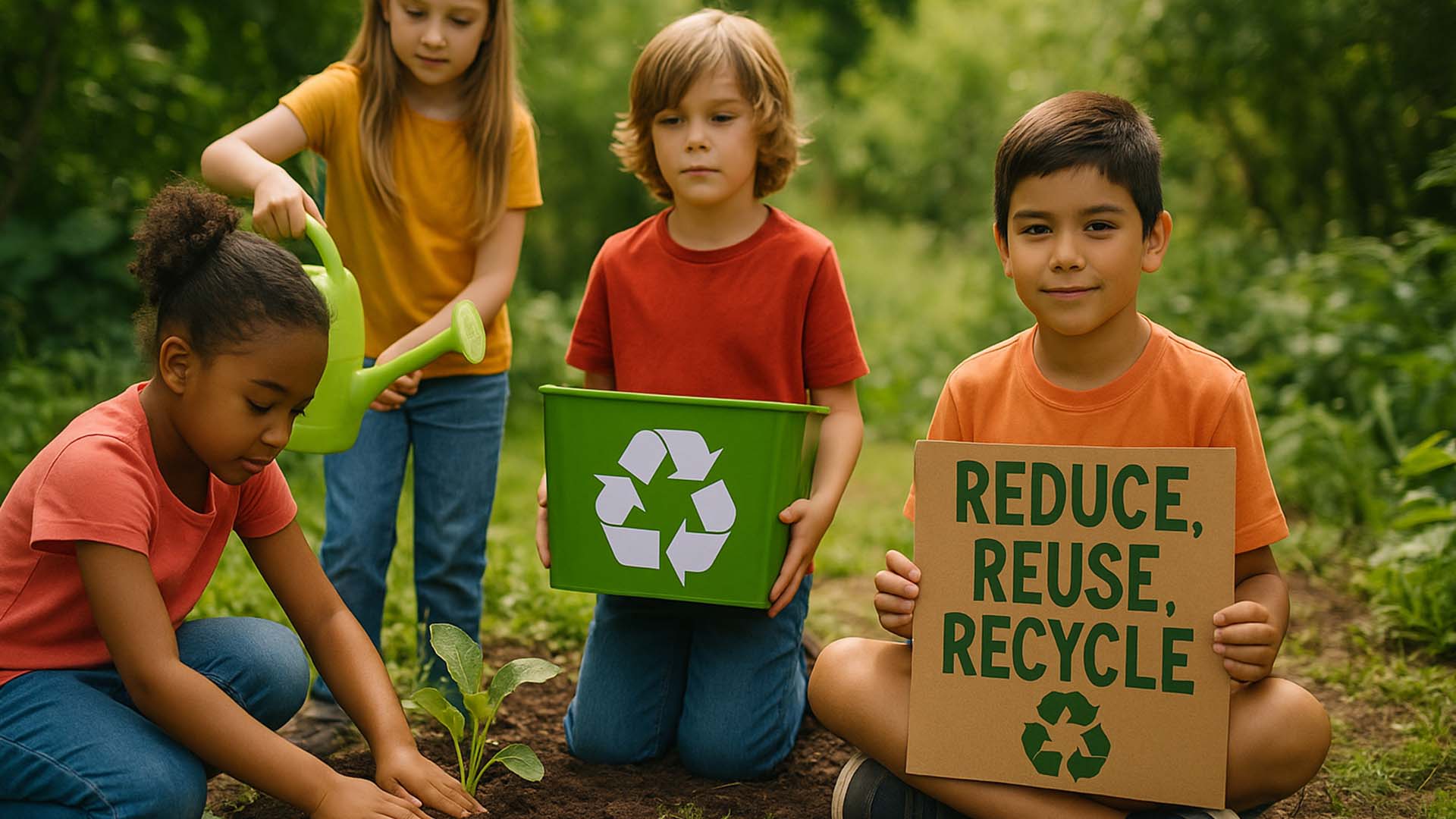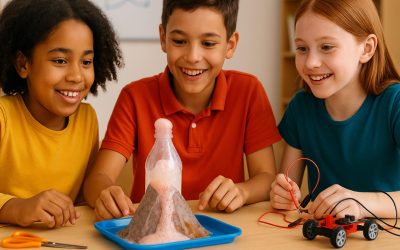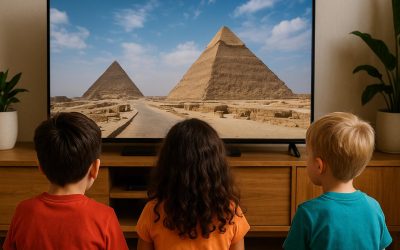In a world increasingly aware of environmental challenges, teaching children to be eco-conscious is more important than ever. Raising environmentally aware kids not only helps protect our planet but also instills valuable life skills like responsibility, empathy, and critical thinking.
This article explores practical ways to foster eco-conscious living and environmental education in children, turning them into enthusiastic stewards of the Earth.
The Power of Connecting with Nature
One of the most effective ways to cultivate eco-consciousness in children is by encouraging a deep connection with nature. Spending time outdoors, exploring local parks, or even tending to a backyard garden can foster a sense of wonder and appreciation for the natural world. As children interact with plants, insects, and animals, they develop a natural curiosity and a desire to protect what they love [1]. This hands-on experience helps them understand ecological concepts in a tangible way, making environmental lessons more meaningful and memorable.
The 3 Rs: Reduce, Reuse, Recycle, and Refuse
The classic ‘3 Rs’—Reduce, Reuse, Recycle—are fundamental to environmental education. However, it’s crucial to delve deeper than just recycling. Teaching children to reduce consumption and reuse items before resorting to recycling can significantly lessen their environmental footprint. An additional ‘R’ to consider is refuse. Children can learn to refuse single-use plastics like straws or bags, making conscious choices that benefit the planet [2]. Engaging them in activities like sorting recyclables, finding new uses for old items, or even making a ‘birthday box’ to donate old toys before receiving new ones can make these concepts fun and actionable.
Gardening: A Hands-On Lesson in Sustainability
Planting a garden with children offers a wealth of educational opportunities. From understanding where food comes from to observing the life cycles of plants and insects, gardening teaches patience, responsibility, and the interconnectedness of ecosystems. It also highlights the importance of local food production and how it reduces carbon footprints associated with transportation [3]. Even small-scale gardening, like growing herbs in pots, can provide valuable lessons in sustainability and foster a deeper appreciation for nature.
DIY Projects and Sustainable Choices
Encouraging children to engage in DIY projects using recycled materials not only sparks creativity but also reinforces the concept of reuse. Transforming discarded items into new creations helps them see the potential in what might otherwise be considered waste. Furthermore, teaching children to support sustainable brands and make eco-friendly choices in their daily lives, such as using homemade cleaning products, empowers them to be active participants in environmental protection [4]. These practices instill a sense of agency and show them that their actions, no matter how small, can make a difference.
Q&A: Eco-Conscious Kids
Q1: Why is it important for children to learn about eco-consciousness?
A1: Learning about eco-consciousness helps children understand their role in protecting the planet, fosters responsibility, and develops critical thinking skills. It prepares them to make sustainable choices throughout their lives.
Q2: How can I make environmental education fun for my child?
A2: Engage them in hands-on activities like gardening, nature walks, DIY projects with recycled materials, and participating in community clean-up events. Make it an adventure of discovery!
Q3: What are the ‘3 Rs’ and why are they important?
A3: The ‘3 Rs’ stand for Reduce, Reuse, and Recycle. They are important because they guide us in minimizing waste and conserving resources. Reducing consumption and reusing items are often more impactful than just recycling.
Q4: Where can I find more resources for teaching my child about sustainability?
A4: Organizations like Heritage Conservancy [1] and Product of the North [2] offer valuable insights and tips. Educational websites and local environmental groups often provide activities and information tailored for children.
Sources
- Heritage Conservancy: 7 Ideas to Help Raise Eco-Conscious Kids
- Product of the North: Raising Eco-Friendly Kids: Green Parenting Guide
- American SPCC: Teaching Kids Sustainable Choices for a Greener Future
- Sustainable America: 8 Tips For Raising Eco Conscious Kids








0 Comments